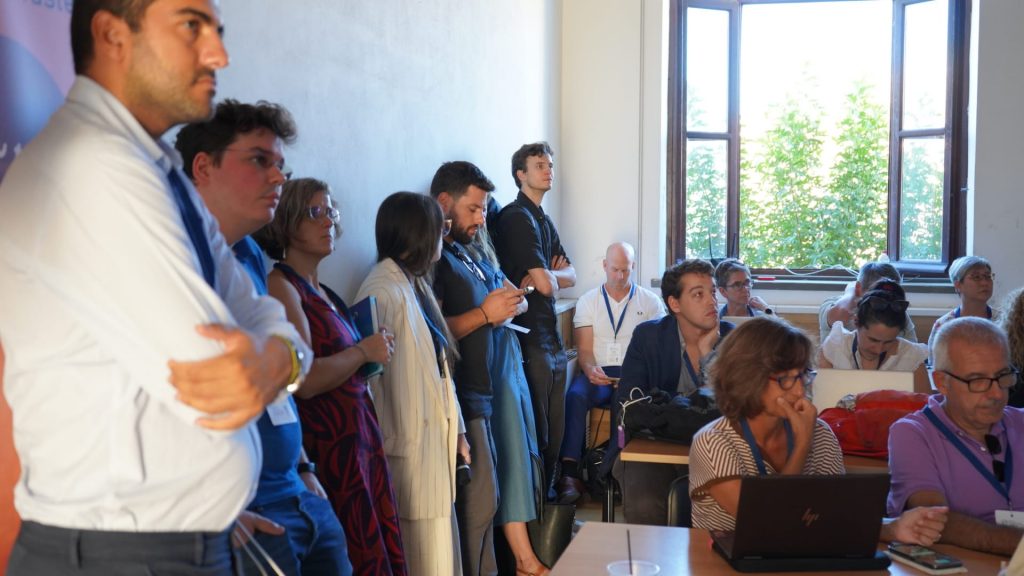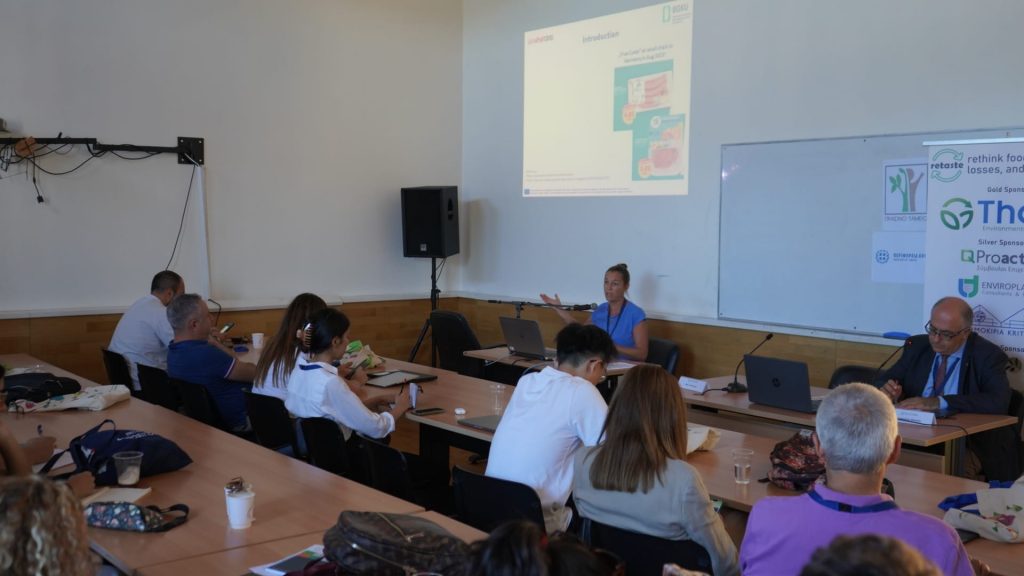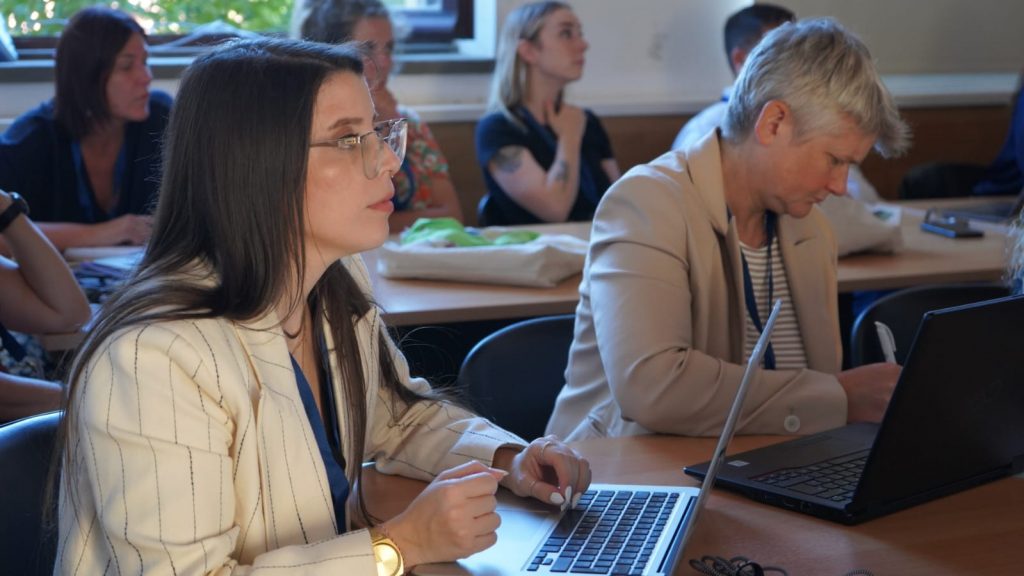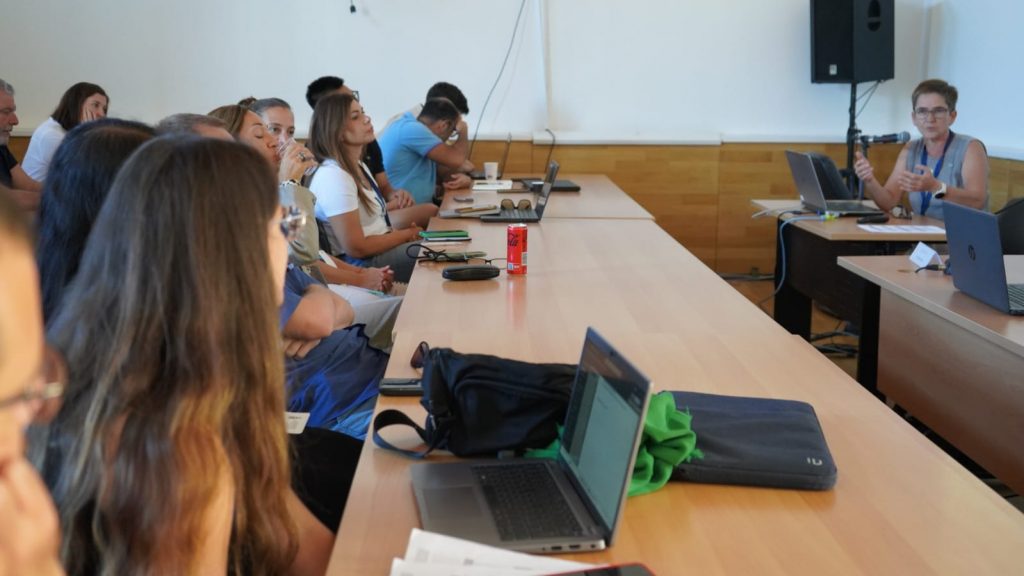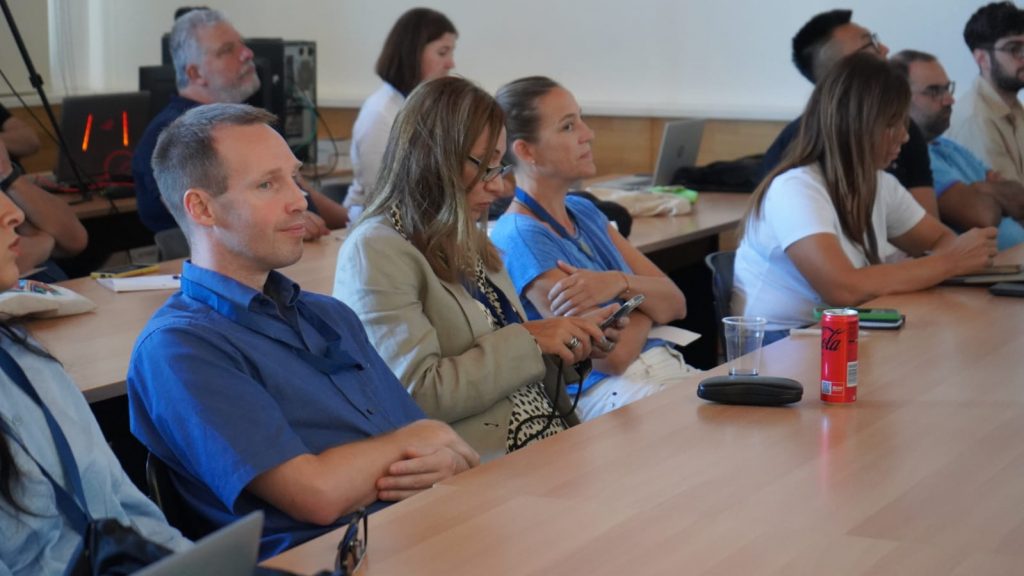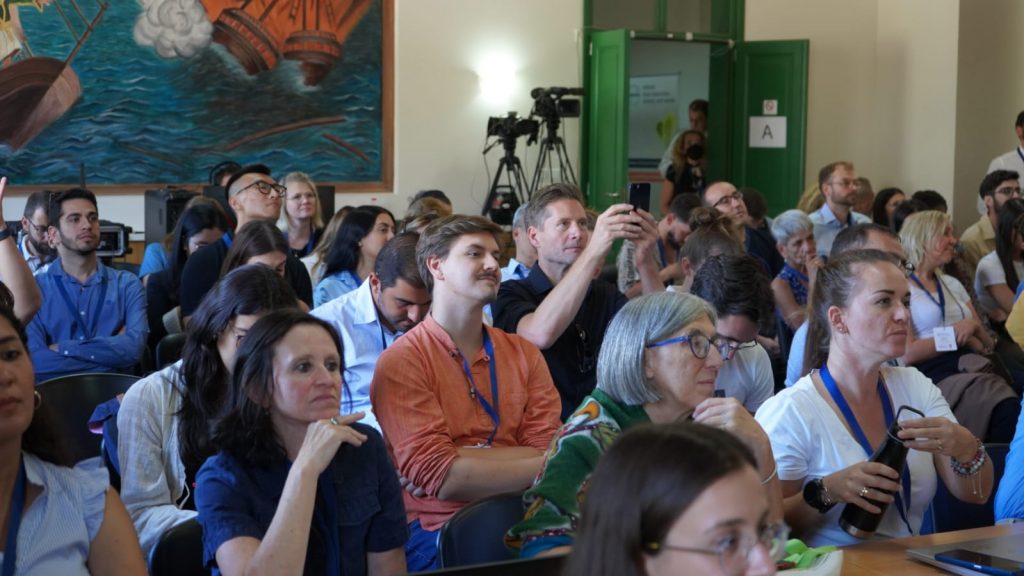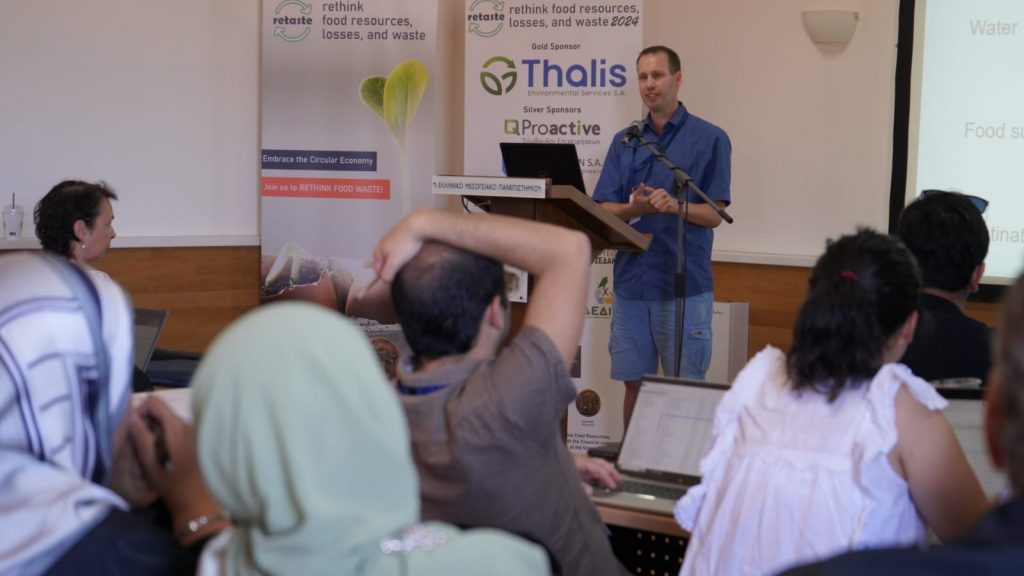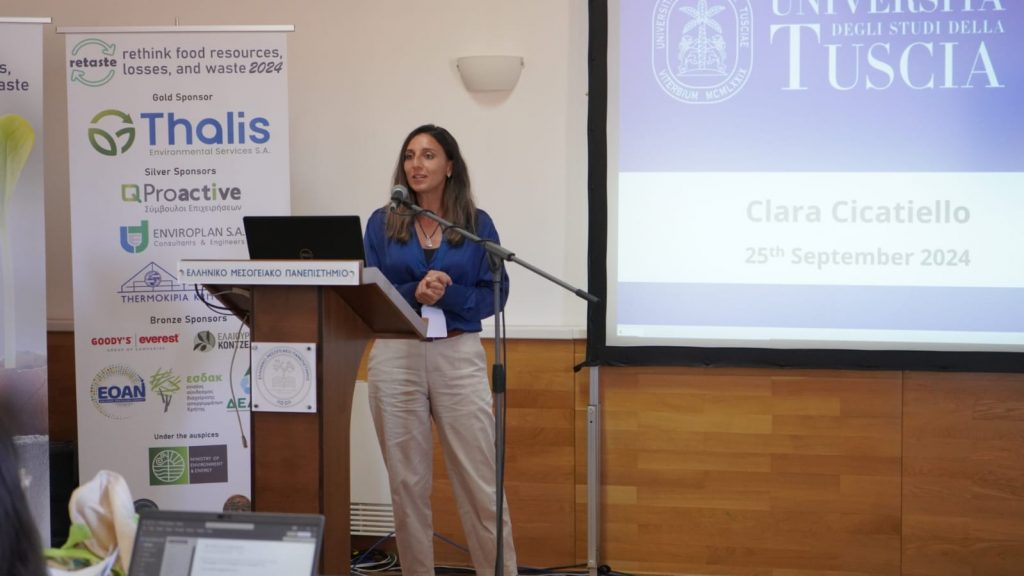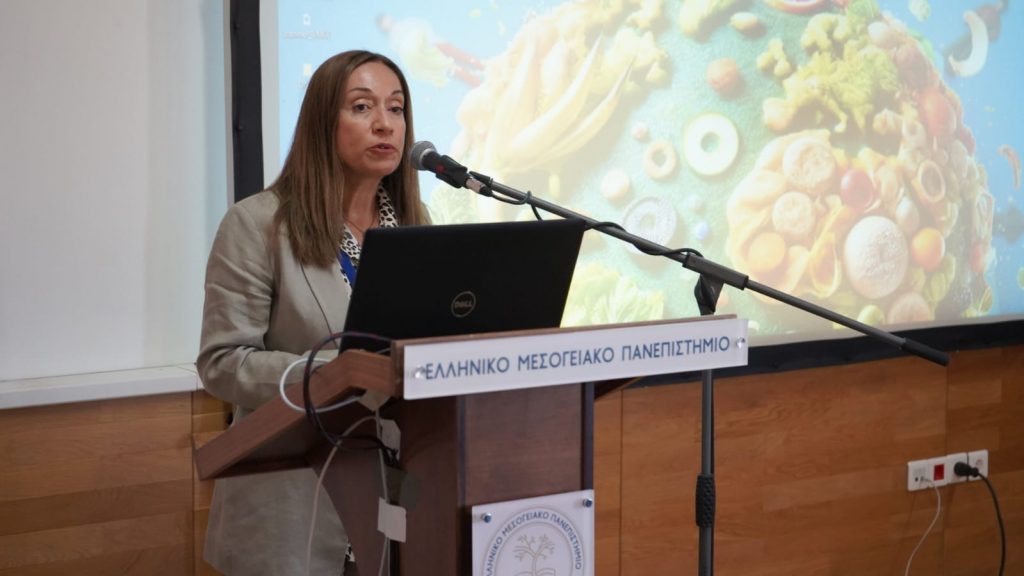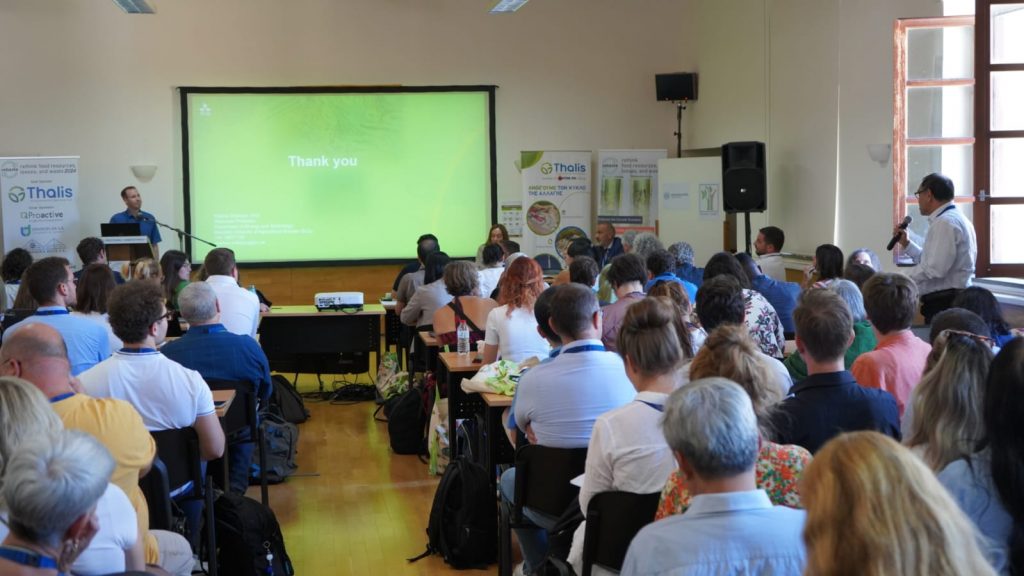
LOWINFOOD results featured the Retaste 2024 Conference
From 25 to 27 September, after the celebration of the General Project Meeting, all the research partners of the LOWINFOOD consortium attended the Retaste 2024 Conference, co-organised by the LOWINFOOD partner Harokopio University at the Hellenic Mediterranean University in Archanes, Crete.
LOWINFOOD had a prominent presence at the conference, and presentations by consortium researchers on LOWINFOOD results took up a considerable part of the conference agenda. Many sessions included our project name in their name, and many consortium partners chaired these parallel sessions during the conference: on the first day, Christina Strotmann co-chaired two sessions under the title of “LOWINFOOD – Prevention and Redistribution”, one of them together with Luca Falasconi. One of the sessions devoted to the measurement and evaluation of food loss and waste was co-chaired by Silvia Scherhaufer. Katia Lasaridi, Claudia Giordano and Mattias Eriksson also co-chaired various sessions on prevention and redistribution on the second day.
The three-day full program started with a series of keynote speeches, some of them offered by LOWINFOOD partners:
- Katia Lasaridi, Professor at the Department of Geography of Harokopio University and one of the organisers of the Conference, offered a presentation entitled “From Granular Data to National Quantities: Tackling the Challenges of Measuring Food Waste and Turning Insights into Actionable Statistics”. She provided an overview of global waste production, turning to national household food waste measurements in Greece and the law established to make actors in the service sector report the food waste they generate.
- Clara Cicatiello, the project coordinator and Assistant Professor, Department for Innovation in Biological Systems, Food and Forestry, University of Tuscia, talked about “Redistribution and donation of surplus food: the ‘plan B’ to avoid food waste”. She explained, among others, the stages of the food supply chain where surplus food is generated and detailed the double benefit of the distribution of this surplus food to people experiencing food poverty (avoiding food waste and helping people in need).
- Matias Eriksson, Associate Professor, Swedish University of Agricultural Science, dissertated on the core of food waste definitions. He brought up several tricky aspects regarding food waste definitions (what is food waste?) in areas such as edibility (what parts of food products we do not eat can be considered food waste?), water (should water present in food products be considered food waste?), food supply chain and destination, offering a very vivid speech.
During the sessions, as many as 18 presentations were delivered by LOWINFOOD partners in the different sessions devoted to various aspects of food waste prevention scheduled in Retaste. Find below the title of the speech offered by each partner with a link to more information.
Simone Piras, from the James Hutton Institue: Innovation as an Intervention: How Being Involved in Innovations Against Food Waste Changes Individuals’ Awareness, Attitude, and Behaviours?
Christina Strotmann, from the Institute of Sustainable Nutrition (ISUN): Reducing Returned Products and Increasing Sustainability in the German Bakery Trade by Order Optimization Software.
Elisabeth Schmied, from the University of Natural Resources and Life Sciences: Surplus food redistribution in a business-oriented approach.
Nazli Koseoglu, from the James Hutton Institue: A standard protocol to assess the economic impact of innovations against food waste. Insights from an EU-level Innovation Action project.
Gudrun Obersteiner, from the University of Natural Resources and Life Sciences: Emission reduction potential of food waste prevention.
Roberta Pietrangeli, from the University of Tuscia: The Cost of Surplus Bread: a Direct Quantification at Italian Small-scale Bakeries.
Tobias Engelmann, from the Institute of Sustainable Nutrition (ISUN): Barriers and opportunities to adding value to seafood surplus materials. Perspectives from value chain stakeholders.
Federico Tonegatti, from the University of Bologna: Measuring the social impact of the recovery and donation of fruit and vegetable products: an analysis of the social return on investment of the S.I.R. Platform.
Silvia Scherhaufer, from the University of Natural Resources and Life Sciences: Environmental cost savings through food waste prevention.
Nina Mesiranta, from the Tampere University: Mobile Kitchen Management App as an Intervention to Reduce Food Waste in Households – Experiences from Austria, Finland, and Greece.
Niina Sundin, from the Swedish University of Agricultural Science: Investigating the Efficacy and Sustainability Impacts of Educational Approaches in Reducing Plate Waste in School Catering.
Nazli Koseoglu, from the James Hutton Institue: Building a Sustainable Seafood Sector Through Collaboration: Insight from a Dialogue Between Scottish Value Chain Stakeholders using Discourse Analysis.
Claudia Giordano, from the Natural Resources Institute of Finland: Efficacy of innovations for food waste prevention and reduction through harmonized measurement and monitoring: the case of LOWINFOOD.
Nina Mesiranta and Malla Mattila, from Tampere University: Innovating new solutions to address the problem of bread waste through stakeholder dialogues in Finland, Italy, and Sweden.
Marco Nasso, from the University of Tuscia: Up-scaling funding mechanism for farmers: Evaluating the S.I.R. Platform’s Impact on Food Waste Prevention and Economic Sustainability in Italy.
Mattias Eriksson, from the Swedish University of Agricultural Science: Are all Pupils Equal as Food Waste Makers?
Camilla Comis, from the University of Tuscia: Enhancing Sustainability at Post Consumption Level: the Case of an Anti-Waste App.
Louise Bartek, from the Swedish University of Agricultural Science: Environmental benefits of prevention and valorization strategies applied for surplus bread at retail in Sweden.
